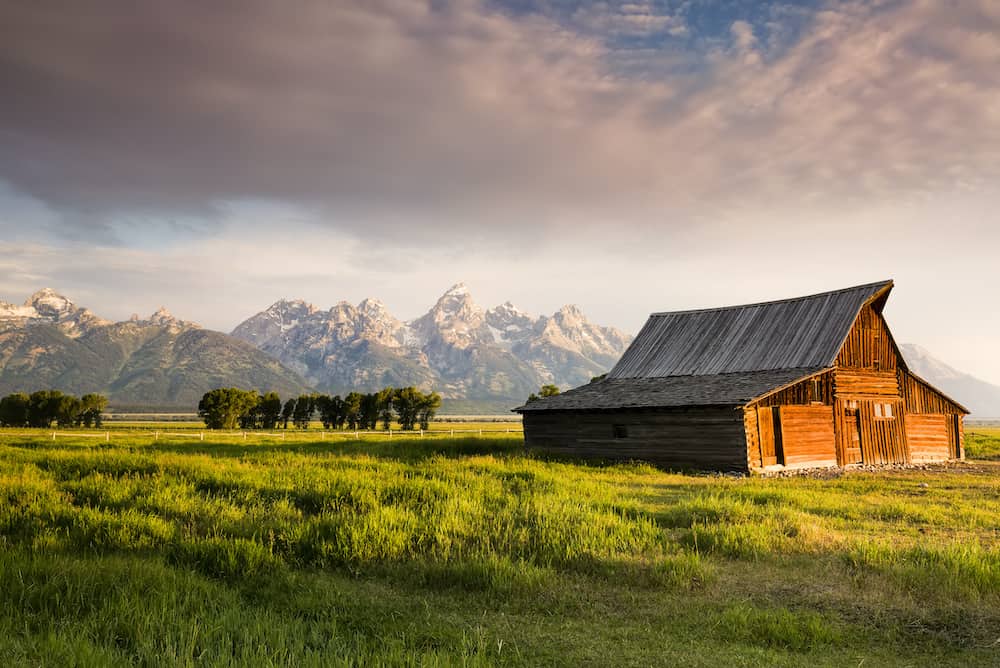Homesteading has become an increasingly popular lifestyle choice for those seeking self-sufficiency, a closer connection to nature, and a simpler way of living. However, not all states offer the same opportunities and conditions for homesteaders. In this article, we will explore the best states for homesteading, taking into account factors such as living costs, climate, state laws, earning potential, homeschooling curricula, and overall demographics.
Why Homesteading?
Homesteading allows individuals and families to live more sustainably by growing their own food, raising livestock, and relying less on modern conveniences. It’s a lifestyle that emphasizes self-reliance, resourcefulness, and a deep connection to the land. For many, homesteading is a way to escape the hustle and bustle of urban life and embrace a more intentional, meaningful existence.
Factors to Consider for Homesteading
Living Costs
The cost of living is a critical factor when choosing a state for homesteading. This includes the price of land, property taxes, and the overall cost of everyday necessities. States with lower living costs make it easier for homesteaders to sustain their lifestyle without needing a substantial external income.
Climate
Climate plays a significant role in homesteading. Ideal homesteading states offer a climate that supports year-round agriculture and comfortable living conditions. Mild winters, ample rainfall, and a long growing season are highly desirable.
State Laws
State regulations can either facilitate or hinder homesteading efforts. Favorable states have laws that support small-scale farming, homeschooling, and minimal restrictions on building and land use.
Earning Potential
While homesteading aims for self-sufficiency, additional income sources are often necessary. States with diverse job opportunities or markets for selling farm products provide a safety net for homesteaders.
Homeschooling Curriculum
For families, the availability of a robust homeschooling curriculum and supportive regulations is crucial. States that offer flexible and comprehensive homeschooling options make it easier for homesteading families to educate their children.
Overall Demographics
The cultural and social environment can impact the homesteading experience. States with communities supportive of homesteading, farming, and sustainable living are more welcoming and provide valuable networks for new homesteaders.
The Top States for Homesteading
Based on the above factors, here are the top states for homesteading:
1. Texas
Diverse Landscapes and Abundant Resources
Texas offers a vast array of landscapes, from fertile plains to lush forests, providing ample opportunities for diverse homesteading practices. The state’s large size means there’s plenty of affordable land available.
Favorable Climate
Texas has a generally mild climate with long growing seasons, particularly in the eastern and southern parts of the state. This allows for multiple harvests per year and a wide variety of crops.
Supportive Laws
The state of Texas has minimal regulations regarding small-scale farming and livestock, making it easier for homesteaders to pursue their projects. Additionally, Texas has a strong homeschooling community and supportive laws, providing excellent educational opportunities for homesteading families.
2. West Virginia
Affordable Land and Low Cost of Living
West Virginia is known for its affordable land and low cost of living, making it an attractive option for those looking to start a homestead without a significant financial burden.
Rich Soil and Favorable Growing Conditions
The state boasts fertile soil and adequate rainfall, supporting a variety of crops and livestock. The moderate climate with distinct seasons allows for year-round agricultural activities.
Community and Culture
West Virginia has a strong tradition of self-sufficiency and a supportive community of like-minded individuals. The state’s cultural acceptance of homesteading makes it easier for new homesteaders to integrate and thrive.
3. Kansas
Ideal Agricultural Conditions
Kansas, often called the “Breadbasket of America,” offers some of the best agricultural conditions in the country. The state’s flat terrain and fertile soil are perfect for large-scale farming and homesteading.
Affordable Land
Land in Kansas is relatively inexpensive, allowing homesteaders to acquire significant acreage without a hefty investment.
Supportive Infrastructure
Kansas has a robust agricultural infrastructure, including access to farming equipment, supplies, and markets for selling produce and livestock. This infrastructure is beneficial for both new and experienced homesteaders.
4. Kentucky
Mild Climate and Fertile Land
Kentucky’s mild climate and fertile soil make it an excellent state for homesteading. The long growing season supports a wide variety of crops, and the state’s abundant water resources are ideal for farming and livestock.
Homesteading-Friendly Laws
Kentucky has supportive laws for small-scale farming and minimal building restrictions, providing flexibility for homesteaders to develop their land as they see fit.
Strong Community Support
Kentucky has a vibrant homesteading community, offering a network of support and resources for those looking to start or expand their homestead. The state’s strong emphasis on family and community aligns well with the homesteading lifestyle.
5. Oklahoma
Affordable Living
Oklahoma offers a low cost of living and affordable land prices, making it accessible for those looking to start a homestead on a budget.
Favorable Climate
The state’s climate is conducive to a wide range of agricultural activities, with warm summers and mild winters allowing for extended growing seasons.
Minimal Regulations
Oklahoma has minimal regulations regarding small-scale farming and land use, giving homesteaders the freedom to pursue their projects without excessive governmental interference.
6. Tennessee
Rich Agricultural Heritage
Tennessee has a rich agricultural heritage, providing a supportive environment for homesteaders. The state’s fertile soil and favorable climate are ideal for farming and livestock.
Affordable Land
Land prices in Tennessee are relatively low, allowing homesteaders to acquire ample space for their activities.
Supportive Community
Tennessee’s strong sense of community and cultural acceptance of homesteading create a welcoming environment for new and experienced homesteaders alike.
States That Didn’t Make the Cut
While several states offer promising conditions for homesteading, some did not make the cut due to various challenges.
Hawaii
High Living Costs
Hawaii’s high cost of living and expensive land prices make it challenging for most homesteaders to sustain their lifestyle. The state’s remote location also increases the cost of supplies and equipment.
Nevada
Harsh Climate
Nevada’s harsh climate, characterized by extreme temperatures and limited rainfall, makes it difficult to maintain a successful homestead. The state’s arid conditions are not conducive to most agricultural activities.
High Living Costs
In addition to the challenging climate, Nevada has a high cost of living, making it less accessible for those looking to start a homestead on a budget.
Alaska
Extreme Climate
While Alaska offers abundant natural resources and vast expanses of land, its extreme climate poses significant challenges for homesteading. The long, harsh winters and short growing seasons make agriculture difficult.
High Cost of Living
Alaska’s remote location and high cost of living add to the challenges of homesteading in the state. The cost of supplies and equipment is significantly higher due to the state’s isolation.
Conclusion
Homesteading is a rewarding lifestyle that offers self-sufficiency, a connection to nature, and a simpler way of living. However, choosing the right state for homesteading is crucial to ensure success and sustainability. Texas, West Virginia, Kansas, Kentucky, Oklahoma, and Tennessee stand out as the best states for homesteading, offering favorable conditions such as affordable land, supportive laws, and strong community support. On the other hand, states like Hawaii, Nevada, and Alaska pose significant challenges due to high living costs and harsh climates.
By carefully considering factors such as living costs, climate, state laws, earning potential, homeschooling options, and overall demographics, aspiring homesteaders can find the ideal state to start their journey toward a more sustainable and fulfilling lifestyle.







